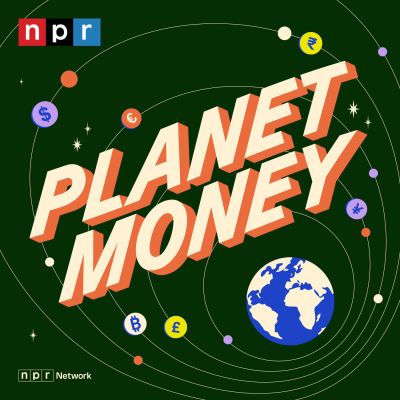Wanna see a trick? Give us any topic and we can tie it back to the economy. At Planet Money, we explore the forces that shape our lives and bring you along for the ride. Don't just understand the economy – understand the world.Wanna go deeper? Subscribe to Planet Money+ and get sponsor-free episodes of Planet Money, The Indicator, and Planet Money Summer School. Plus access to bonus content. It's a new way to support the show you love. Learn more at plus.npr.org/planetmoney
https://www.npr.org/podcasts/510289/planet-money
Gesamtlänge aller Episoden: 13 days 5 hours 24 minutes
recommended podcasts
episode 1687: Cutting school... by 20%
Right now, a lot of school districts across the country are making a pretty giant change to the way public education usually works. Facing teacher shortages and struggling to fill vacant spots, they are finding a new recruitment tool: the four-day school week.
Those districts are saying to teachers, "You can have three-day weekends all the time, and we won't cut your pay." As of this fall, around 900 school districts – that's about 7% of all districts in the U.S...
episode 1686: How unions are stopped before they start
Union membership in the U.S. has been declining for decades. But, in 2022, support for unions among Americans was the highest it's been in decades. This dissonance is due, in part, to the difficulties of one important phase in the life cycle of a union: setting up a union in the first place. One place where that has been particularly clear is at the Volkswagen plant in Chattanooga, Tennessee...
episode 1685: Indicator exploder: jobs and inflation
When someone says "the economy is doing well"—what does that even mean? Like, for workers, for employers, for the country as a whole? According to what calculation? How do you put a number on it?
The world of economics is filled with all sorts of "measuring sticks." GDP. Inflation. Unemployment. Consumer sentiment. Over time, all kinds of government agencies, universities and private companies have come up with different ways to measure facets of the economy...
episode 1684: Maria Bamford gets personal (about) finance
Note: There is swearing in this episode.
In 2017, The University of Minnesota asked comedian Maria Bamford to give their commencement speech. But the University may not have known what it was in for. In her speech, Bamford told the crowd of graduates how much the university offered to pay her (nothing), her counteroffer ($20,000), and the amount they settled on ($10,000), which (after taxes and fees, etc.) she gave away to students in the audience to pay down their student loans...
episode 1683: Why the price of Coke didn't change for 70 years (classic)
Prices go up. Occasionally, prices go down. But for 70 years, the price of a bottle of Coca-Cola didn't change. From 1886 until the late 1950s, a bottle of coke cost just a nickel.
On today's show, we find out why. The answer includes a half a million vending machines, a 7.5 cent coin, and a company president who just wanted to get a couple of lawyers out of his office.
This episode originally ran in 2012.
This episode was hosted by David Kestenbaum...
episode 1682: A man, a plan, wind power, Uruguay
In 2007, Uruguay had a massive problem with no obvious fix. The economy of this country of 3.5 million people was growing, but there wasn't enough energy to power all that growth.
Ramón Méndez Galain was, at the time, a particle physicist, but he wanted to apply his scientific mind to this issue. He started researching different energy sources and eventually wrote up a plan for how Uruguay's power grid could transition to renewable energy...
episode 1681: The flight attendants of CHAOS
When contract negotiations between Alaska Airlines and their flight attendants' union broke down in 1993, the union had a choice to make.
The union — The Association of Flight Attendants-CWA — knew that if they chose to strike, Alaska Airlines could use a plan. While Alaska Airlines technically couldn't fire someone on strike, they could permanently replace the striking flight attendants with new workers...
episode 1681: The flight attendants of CHAOS
When contract negotiations between Alaska Airlines and their flight attendants' union broke down in 1993, the union had a choice to make.
The union — The Association of Flight Attendants-CWA — knew that if they chose to strike, Alaska Airlines could use a plan. While Alaska Airlines technically couldn't fire someone on strike, they could permanently replace the striking flight attendants with new workers...
episode 1680: A trucker hat mystery, the curse of September and other listener questions
Ba-dee-yah! Say do you remember? Ba-dee-yah! Questions in September!
That's right - it's time for Listener Questions!
Every so often, we like to hear from listeners about what's on their minds, and we try to get to the bottom of their economic mysteries...
episode 1679: The natural disaster economist
There seems to be headlines about floods, wildfires, or hurricanes every week. Scientists say this might be the new normal — that climate change is making natural disasters more and more common.
Tatyana Deryugina is a leading expert on the economics of natural disasters — how we respond to them, how they affect the economy, and how they change our lives...








































